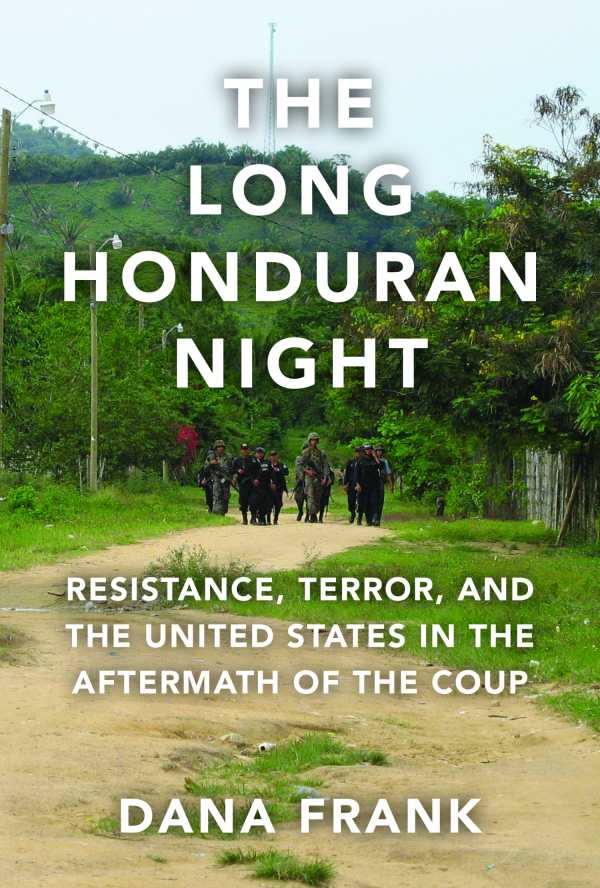The Long Honduran Night
Resistance, Terror, and the United States in the Aftermath of the Coup
- 2018 INDIES Finalist
- Finalist, Political and Social Sciences (Adult Nonfiction)
Dana Frank’s intensely personal The Long Honduran Night chronicles efforts to redirect America’s foreign policy toward Honduras following its 2009 military coup. After witnessing increasingly violent repression, Frank became an activist, documenting human rights abuses, mobilizing public support, and meeting with political leaders to slow the spigot of American and international aid flowing to the post-coup regime.
The book is harrowing, filled with first- and second-hand accounts of murders, gang rapes, disappearances, and attacks on Honduran civilians. It is a meticulous indictment of Honduran police, security guards, and soldiers controlled by oligarchs and transnational corporations. While the drumbeat of these atrocities can be mind-numbing, Frank brings immediacy and humanity to this continuing tragedy with her accounts of individuals: farmers, teenagers, teachers, and LGBTQ and indigenous activists who have been brutalized.
An especially illuminating passage highlights the obstacles that citizen lobbyists face. Facing new crops of congressional and State Department aides each legislative season, Frank must constantly reeducate people who find her accounts “too farfetched to be true.” While she points to a handful of congressional advocates working to tie US aid to improvements in human rights, Frank portrays a federal government on automatic, ready to hold the status quo and bolster American economic and military power in Central America.
If there is any spot of brightness peeking through The Long Honduran Night, it is in the continued growth of a Honduran grassroots resistance. Frank calls being allied to them in their struggles a “beautiful gift” even as she condemns the US for continuing to “dance with dictators” in Central America. Her book is powerful, passionate, and meticulous in its documentation of foreign policy in Honduras, a country that has long been slighted in mainstream journalism and academic research.
Reviewed by
Rachel Jagareski
Disclosure: This article is not an endorsement, but a review. The publisher of this book provided free copies of the book to have their book reviewed by a professional reviewer. No fee was paid by the publisher for this review. Foreword Reviews only recommends books that we love. Foreword Magazine, Inc. is disclosing this in accordance with the Federal Trade Commission’s 16 CFR, Part 255.

